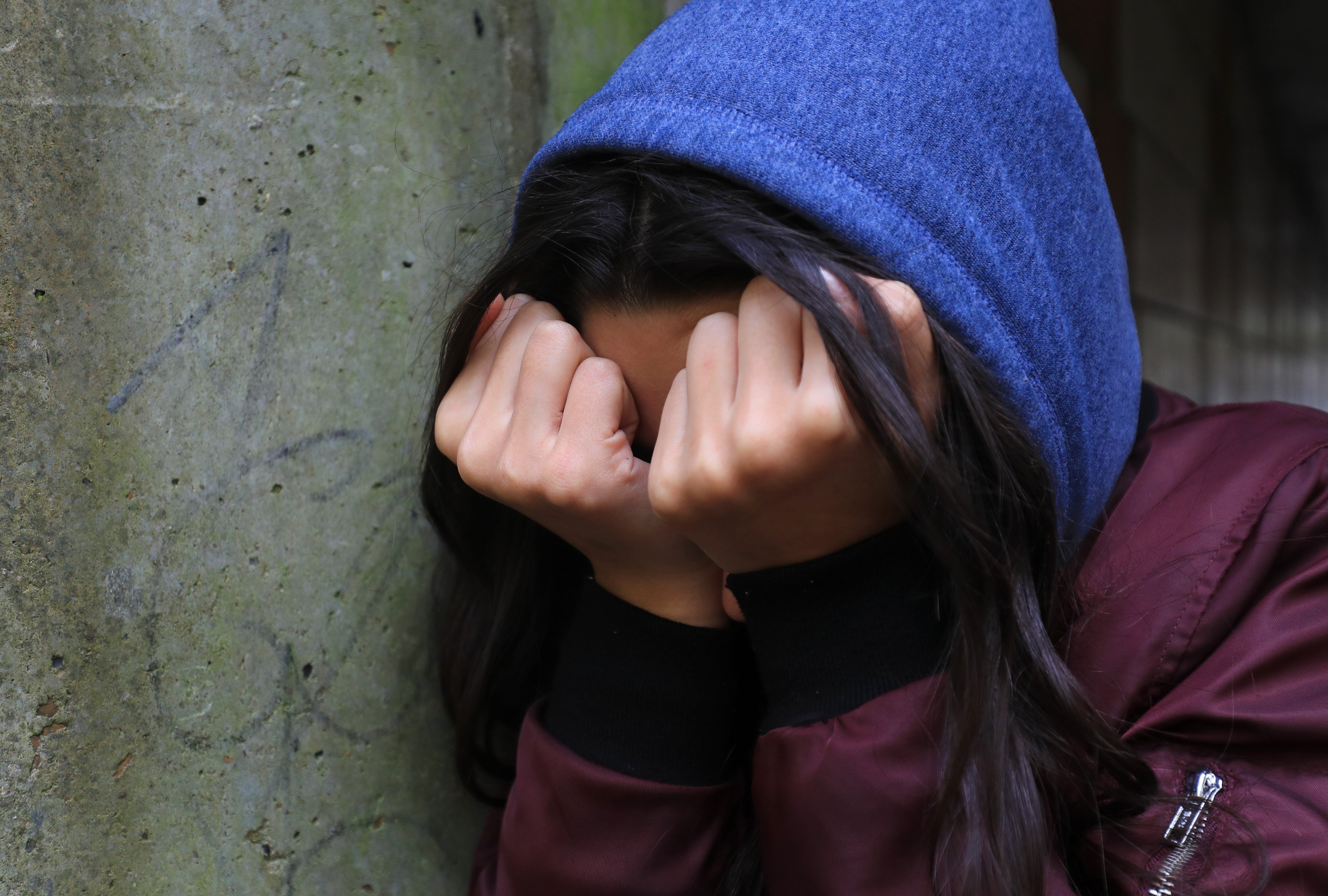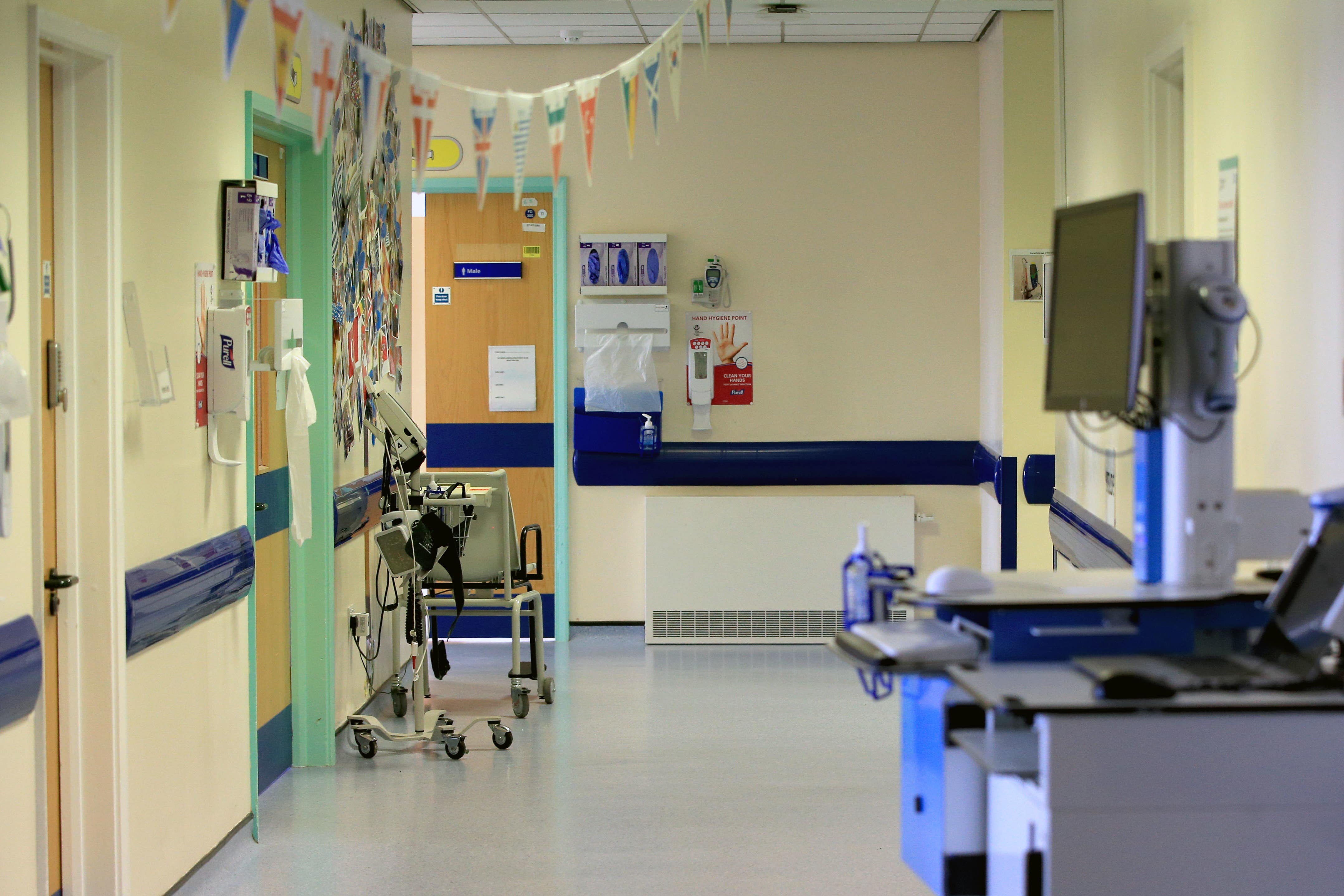More children than ever need mental health care as figures show nearly half a million are awaiting treatment
Exclusive: Top doctor says new targets needed for the NHS to tackle ‘crisis’ in children’s mental health
Nearly half a million children are waiting for mental health treatment, with some youngsters left to languish for several years before being seen by medics in what has been described as a “scandal”.
The NHS figures, analysed by The Independent, show that a record 496,897 under-18s had been referred by a GP for treatment under Child and Adolescent Mental Health Services (Camhs) at the end of November last year – up from 493,434 the month before.
Anxiety and depression are among the most common conditions for which children are being referred. One mother, whose 11-year-old daughter is still awaiting treatment for obsessive compulsive disorder (OCD), said: “I don’t want her to become suicidal with this. The system is so broken. Unless you’re in it, you don’t get how broken it is.”
In one area – Halton, in Cheshire – figures show that some children have been waiting for four and a half years to be seen by a mental health professional. Nationally, the average time for those deemed to have been waiting the longest is 675 days – around 22 months – while the average wait for all youngsters across the country is 107 days.
Health experts have warned that the UK is facing a mental health crisis, and have called for the “staggering demand” to be addressed urgently. Tom Madders, from mental health charity Young Minds, said: “Behind every referral is a young person struggling to cope and calling for help from a broken system.”
The shocking statistics come after The Independent published a series of exposés highlighting the poor treatment of mental health patients across the country, prompting the government to launch national reviews into mental health care.
The Independent can also report that:
- A total of 289,047 children have been approved for treatment under mental health services but are still waiting to have their first appointment – an increase of 50,000 in just two months
- Eleven areas in England recorded under-18s waiting more than four years to be seen. Halton had average waits of three years and eight months
- There has been a huge increase in the number of young people aged eight to 25 who probably have a mental health disorder, according to the most recent NHS data – up from one in eight in 2017 to one in five
- Children living in households that cannot keep up with paying the bills were among those with a higher rate of mental illness
Professor Alka Ahuja, vice-chair of the Royal College of Psychiatrists’ child and adolescent faculty, said in response to the figures: “It is clear that the mental health crisis affecting children and young people must urgently be addressed. No child should have to wait months for treatment which is vital to their recovery and future wellbeing.”
She said young people who can access mental health support quickly are far less likely to develop severe and complex conditions. She called for Camhs to be provided with the staffing and funding to bring down waiting lists.

Sean Duggan, chief executive of the NHS Confederation’s mental health network, said the data lays bare the need to introduce waiting time targets for children’s community mental health services, as well as to expand support teams in schools and open more early-access hubs.
“It is yet more evidence of the staggering demand for mental health care from children and young people. While meeting that need for care was challenging pre-Covid, in the face of a number of issues including historical underfunding, long waiting lists, and workforce shortages, the increase linked to the pandemic has had a major impact,” he said.
A ‘black hole’
Deborah Woods’ daughter Rachel, 11, has been waiting since March last year after a referral by her GP to Camhs. Her OCD had become so bad that she was refusing to wear certain clothes due to a fear of contamination.
The young girl, from Wyre, has been suffering from severe OCD since she was six years old, when her first referral was refused because clinicians were told by her school that she was performing well, Ms Woods said. However, a deterioration in her condition forced Ms Woods to send her daughter to a private children’s mental health service, costing the family thousands.
After her daughter became ill again when schools returned after the pandemic in 2021, Ms Woods faced another battle to get her treatment. While she was waiting to be seen, one staff member advised Ms Woods that giving her daughter a face massage could help.
“You’re really desperate. Being told to give your child a facial massage is just – it’s so, so soul-destroying,” she said. It was only after Ms Woods took her daughter to A&E in 2022 that Rachel was given nine months of intensive therapy.
But, in March 2023, Rachel needed support again as her mental health drastically worsened. It has been almost a year, and she is yet to be even triaged by the service, which is only now seeing patients referred in December 2022.
Describing the wait, Ms Woods said: “You’re in this black hole of a system, and that feels like – you’ve no idea. You’re referred by a GP; if you’re lucky you pass that. Once you’re there, it’s like: I don’t know what’s happening. And by the time you get seen, you are at this horrendous crisis point.”

When she was in crisis, Ms Woods says, Rachel would “just lose control of herself. She would scream and she was just in floods of tears and just passing out, she was so ill. She wouldn’t go on grass at one point because she thought it was chives and contaminated.”
Youth mental health emergency
According to the latest analysis of figures, urgent referrals for under-18s also hit a record high of 4,032 in November, an increase on the 3,355 recorded the month before.
The number of new referrals was the second-highest figure ever recorded at 126,111, compared with the previous high of 126,857 in March 2022.
Have you been affected by this story? Email rebecca.thomas@independent.co.uk
Mr Madders, whose charity analysed the figures, said: “Another month of record referrals is further proof of the youth mental health emergency. This is incredibly distressing. Behind every referral is a young person struggling to cope and calling for help from a broken system.
“How much worse does the situation need to get before the government is prompted to do something about it? Every young person should be able to access the mental health support they need when they need it, and we need urgent action from the government to make this a reality.”
Meanwhile, separate figures analysed by the Royal College of Psychiatrists show that the number of people in contact with mental health, learning disability and autism services has risen by nearly 500,000 in four years.
According to NHS data, published on Thursday, more than 1.85 million people were in contact with those services at the end of November 2023, up from 1.36 million at the end of November 2019.
Of those seeking support, 1.2 million were adults and 444,904 were children. The number of people needing support from learning disability and autism services has more than doubled in the period, to 266,575.
An NHS spokesperson said the latest figures show that the NHS is treating more young people than ever and expanding mental health services “as quickly as possible” within the current funding arrangements.
The Department of Health and Social Care said that with an additional £2.3bn in annual funding, 345,000 more children and young people will be able to access NHS services, and mental health support teams in schools will cover at least 50 per cent of pupils by March 2025.
Join our commenting forum
Join thought-provoking conversations, follow other Independent readers and see their replies
Comments
Bookmark popover
Removed from bookmarks